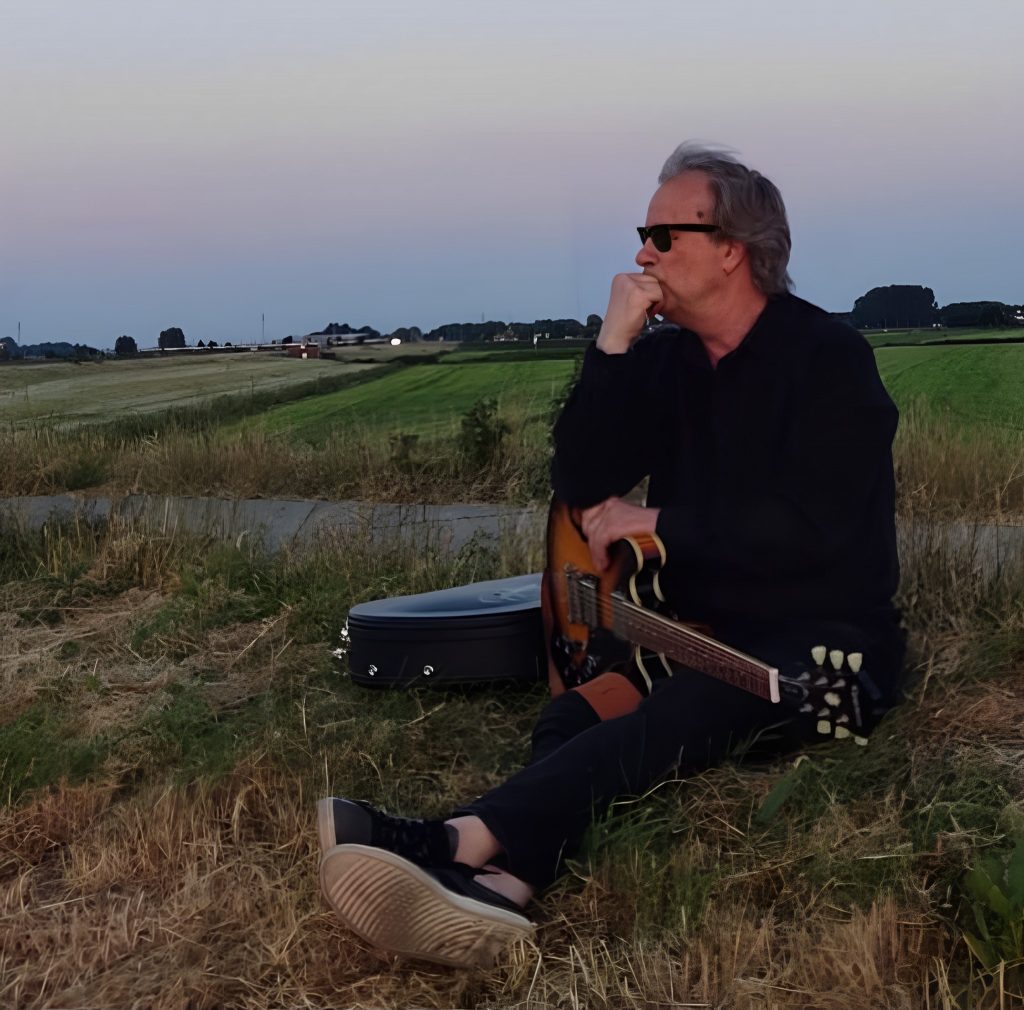Interview With Dutch Singer-Songwriter and Therapist Harry Kappen

Harry Kappen, a talented musician and esteemed music therapist hailing from the Netherlands, has
built an impressive career in the industry. With a diverse range of experiences, Harry has
showcased his skills as both a musician and a producer, contributing to numerous Dutch pop bands.
Furthermore, his dedication to the field of music therapy is evident in his role as a lecturer in an
esteemed international master’s degree program in Rotterdam.
In his capacity as a music therapist, Harry has made a significant impact on the lives of young
children and adolescents, guiding them through various challenges and providing support to
families struggling with dysfunctional patterns. His expertise and compassion have proven
invaluable in helping individuals and families navigate through difficult circumstances.
Beyond his work in music therapy, Harry has garnered recognition as an independent musician. His
successful singles, such as “The Freedom Inside,” “WarGames,” and “Not All of Us Agreed,” have
amassed an impressive total of over 325K Spotify streams. This achievement is a testament to
Harry’s exceptional talent and the compelling nature of his music.
In an exclusive one-on-one interview, Harry graciously shared his insights and experiences with us,
shedding light on his journey as a musician and music therapist. His dedication to his craft and his
unwavering commitment to making a positive impact on others’ lives serve as a true inspiration to
aspiring musicians and therapists alike.
Do you think creating music has helped you become a better music therapist?
Sure; music therapy uses the properties of music such as; harmony, rhythm, the connection with
emotions, playing together, soloing, structure, accompaniment, dynamics etc. Playing in bands,
which I did a lot, was an excellent understand these properties, a good basis for studying music
therapy. Also because I work with the same age group in which I once learned to make music.
That’s why I work with adolescents and their families.
What is the most rewarding part about being a music therapist?
Those are the moments, sometimes years later, when I come across clients who say that our music
therapy has really helped them. It often happens to me that I am appreciated by my clients because
they say that I am a good listener and can empathize with what the young people go through in their
often difficult circumstances. Empathy is a quality that every therapist should possess. It also helps,
of course, that we find a common love in pop music.
How does your songwriting process differ from other musicians?
I wouldn’t know. I only know how I do it. I often start with the music, with the sound and make a
mix of it that I play a lot in my car. Melody and lyrics often come naturally. Over the years I have
learned not to be too easily satisfied and to give myself time. Then it’s a matter of puzzling until the
magical moment comes when everything comes together.
What inspired you to write your new single “Not All Of Us Agreed”?
I often make music on current topics, in this case the rapidly developing technology such as A.I.
People like you and me are increasingly confronted with these new technologies. Without having
had any say beforehand, we have to adapt time and time again. The dangers of these technologies
are now also increasingly clear. Nowadays I wonder more and more whether I actually agree with
how everything is organized and developed. So I thought the question: “Did you ask me if I agree
with it” was an important question for me. And because more people struggle with this, I came up
with the title. The rest came naturally.
How do you hope listeners will respond to the song?
I don’t have the illusion that I can exert a lot of influence on others with this song. But I think it
should be mentioned, also in today’s pop music. Sometimes I think that current pop music lyrics
lack depth, especially when you compare it to the 60s – 70s – 80s. Of course, everyone can react
however they want.
How do you think artificial intelligence will shape our future?
I wish I knew. I fear there will be many times when we will be surprised. What we must in any case
watch out for is that the distance between government and citizens should not become too great and
that citizens must therefore be able to rely on what is real and what is fake.
I hope A.I. will not be abused, but unfortunately history teaches us that it will undoubtedly happen
(think of Oppenheimer, who was in a similar situation 70 years ago). I hope I’m wrong.
Can you talk about some of the social issues you’ve addressed in your songs?
It’s not that all of my songs are equally deep and social, but with some I can’t resist reacting to what
I see happening around me. My single ‘Wargames’ is about the war in Ukraine with criticism of
Russia. The next single ‘The Freedom Inside’ is about how I heard a lot of people around me
complaining about the government, about everyone making a mess of it. Then I thought; yes, that’s
easy to say, but maybe ‘real’ change starts with yourself.
My tip in this issue was: find the freedom within yourself and use that freedom to change yourself
first.
What do you think makes a successful song?
I don’t have that secret formula in my possession. For me, in any case, I stay close to myself in
terms of sound and content. I like a nice structure in a song, I like long beautiful melody lines, I like
guitar and I like a nice rhythm. In terms of lyrics, it can be about something, more than ‘I love you
baby’ or ‘oh, how sad I am’. But that doesn’t mean that I occasionally hear myself guilty of it.
Even if a song is less successful, in terms of sales and money, I love every song I make. The songs
arise in a process, at that moment in time, the result of a laid musical puzzle and are finished at a
given moment. Success or no success is then no longer important; it had to be the way they have
become.
What do you think the future of music holds?
In general? Well, pop music has actually not been around that long, while we live in a very fast-
changing world. So that will continue to evolve. Music in general will remain, since it already
existed in prehistoric times. The combination with entertainment will also continue to exist, which
is also a basic human need. But no one knows what it will look like together in 100 years.
I don’t really think that’s important to think about either. We live now and I live in the now.
I certainly hope to be of use to other musicians and/or projects in the future. People can report to
me. Check out my website: www.harrykappen.com




